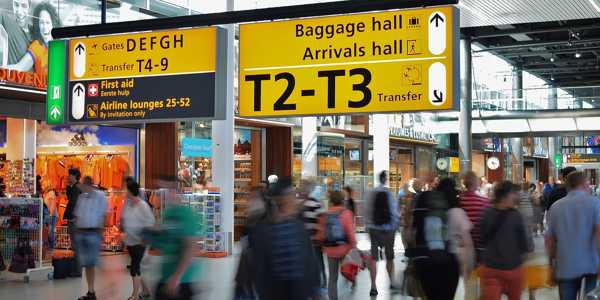14 Tips for Renting a Car Abroad Without Hidden Fees
Author: Mike Fakunle
Renting a car abroad can be a great way to see new places and have more freedom during your trip. But sometimes, hidden fees can make the experience stressful and expensive. I have learned a lot from my travels, and I want to share my tips to help you rent a car abroad without worrying about hidden fees. This guide will cover everything you need to know, from choosing the right rental company to understanding the fine print.
1. Research Rental Companies Before You Travel
The first step to avoiding hidden fees is to research rental companies. Not all companies are the same; some are known for adding extra charges. Here's what you should do;
Read Reviews: Look for reviews online from other travellers. Pay attention to comments about hidden fees or bad experiences.
Compare Prices: Use websites that compare prices from different rental companies. This will help you find the best deal.
Check for Partnerships: Some credit card companies or travel agencies partner with rental companies. These partnerships can give you discounts or extra benefits.

2. Understand the Rental Agreement
The rental agreement is where many hidden fees are hidden. Before signing anything, ensure you understand every part of the agreement. Here's what to look for;
Insurance: Some companies will try to sell you extra insurance, even if you don’t need it. Check if your credit card or personal car insurance already covers rental cars.
Fuel Policy: Some companies require you to return the car with a full gas tank. If you don't, they will charge you a high fee to fill it up.
Mileage Limits: Some rental agreements limit the number of miles you can drive. If you exceed the limit, you will be charged extra.
3. Choose the Right Type of Car
The type of car you choose can also affect the cost. Here are some tips;
Pick a Smaller Car: Smaller cars are usually cheaper to rent and use less gas.
Avoid Luxury Cars: Luxury cars cost more to rent and often come with extra fees.
Check for Extra Features: Some cars have features like GPS or child seats. These features can add to the cost, so you can choose them only if needed.
4. Inspect the Car Before You Drive
Before you drive away, take the time to inspect the car. This will help you avoid being charged for damage you didn’t cause. Here’s what to do;
Check for Scratches and Dents: Look at the car carefully and take pictures of any scratches or dents.
Test the Lights and Wipers: Make sure all the lights and wipers work.
Check the Fuel Level: Make sure the fuel level matches what is written in the rental agreement.
5. Know the Rules of the Road
Driving in a foreign country can be different from driving at home. Here’s what you should know;
Driving Side: In some countries, people drive on the left side of the road. Make sure you are comfortable with this before you rent a car.
Speed Limits: Speed limits can be different in each country. Make sure you know the limits and follow them.
Parking Rules: Parking rules can be strict in some places. Make sure you know where you can park and how much it costs.
6. Avoid Extra Fees at the Counter
When you pick up the car, the rental company might try to sell you extra services. Here's how to avoid these additional fees;
Say No to Extra Insurance: If you already have insurance, you don’t need to buy more.
Decline Upgrades: The company might offer to upgrade your car for a fee. Unless you need a bigger car, say no.
Prepay for Fuel: Some companies offer a prepaid fuel option. This can be convenient, but it's often more expensive than filling the tank.

7. Return the Car on Time
Returning the car late can result in extra fees. Here’s how to avoid this;
Plan Your Trip: Make sure you have enough time to return the vehicle before the rental period ends.
Check Traffic: Traffic can be unpredictable, so leave early to avoid being late.
Return the Car Clean: Some companies charge a cleaning fee if the car is dirty. Make sure to clean the vehicle before you return it.
8. Keep All Receipts and Documents
It's essential to keep all your receipts and documents in case there is a dispute later. Here's what to keep;
Rental Agreement: Keep a copy of the rental agreement until you know there are no extra charges.
Receipts for Fuel: Keep the receipt if you fill up the tank before returning the car.
Photos of the Car: Keep the pictures you took when you picked up the car. These can be useful if the company tries to charge you for damage you didn't cause.
9. Use a Credit Card for Payment
Using a credit card can give you extra protection. Here’s why;
Dispute Charges: If there is a problem with the rental company, you can dispute the charges with your credit card company.
Insurance Benefits: Some credit cards offer rental car insurance as a benefit. Check with your credit card company to see if this is included.
Hold on Funds: Some rental companies put a hold on your credit card for a certain amount. Make sure you have enough available credit to cover this.
10. Be Aware of Local Taxes and Fees
In some countries, local taxes and fees can add to the cost of renting a car. Here’s what to know;
Airport Surcharges: Renting a car at the airport can be more expensive because of surcharges.
Tourist Taxes: Some places charge extra fees for tourists.
Toll Roads: You might have to pay extra fees if you use toll roads.
11. Ask Questions if You’re Unsure
If you're unsure about something, don't hesitate to ask questions. Here's what to ask;
What’s Included in the Price: Ask the rental company to explain all the charges.
Are There Any Extra Fees: Ask if any fees are not included in the price.
What Happens if the Car Is Damaged: Ask what you should do if the car is damaged during your rental period.
12. Consider Alternative Transportation
Sometimes, renting a car might not be the best option. Here are some alternatives;
Public Transportation: In some cities, public transportation is cheap and easy to use.
Bike Rentals: You can rent a bike to get around
in some places.
Walking: Walking might be the best option in a small area.

13. Stay Calm and Polite
If you have a problem with the rental company, staying calm and polite can help. Here’s why;
Better Service: People are more likely to help you if you are polite.
Avoid Arguments: Staying calm can help you avoid arguments and find a solution faster.
Positive Experience: Being polite can make the experience more pleasant for everyone.
14. Learn from Your Experience
Every trip is a learning experience. Here’s how to improve for next time;
Take Notes: Write down what worked and what didn’t.
Share Your Experience: Tell your friends and family about your experience. They might have tips for you, too.
Plan Ahead: Use what you learned to plan better for your next trip.
Renting a car abroad doesn’t have to be stressful or expensive. By following these tips, you can avoid hidden fees and have a great experience. Remember to do your research, read the fine print, and ask questions if you’re unsure.



